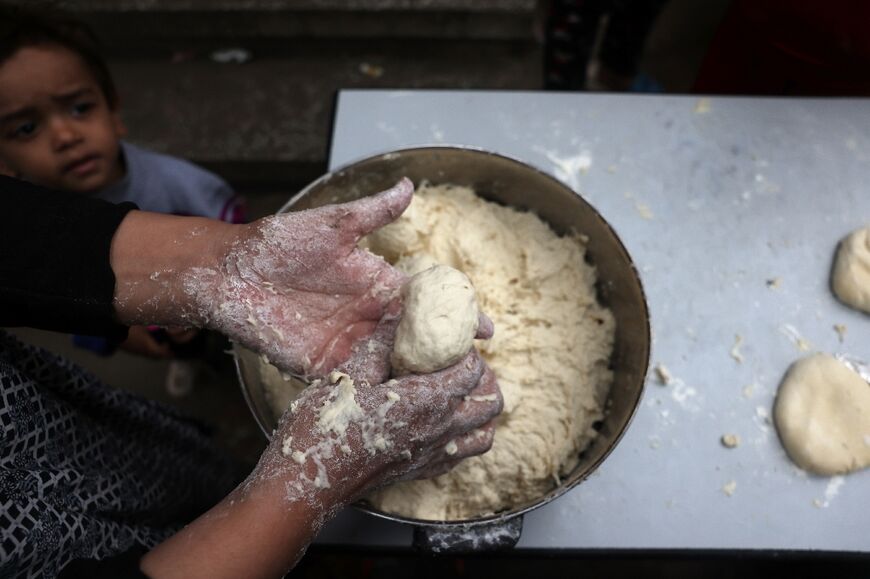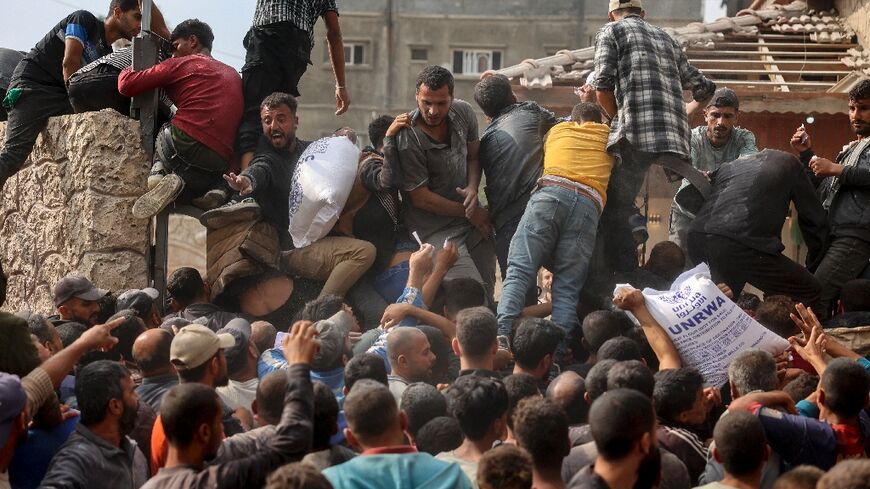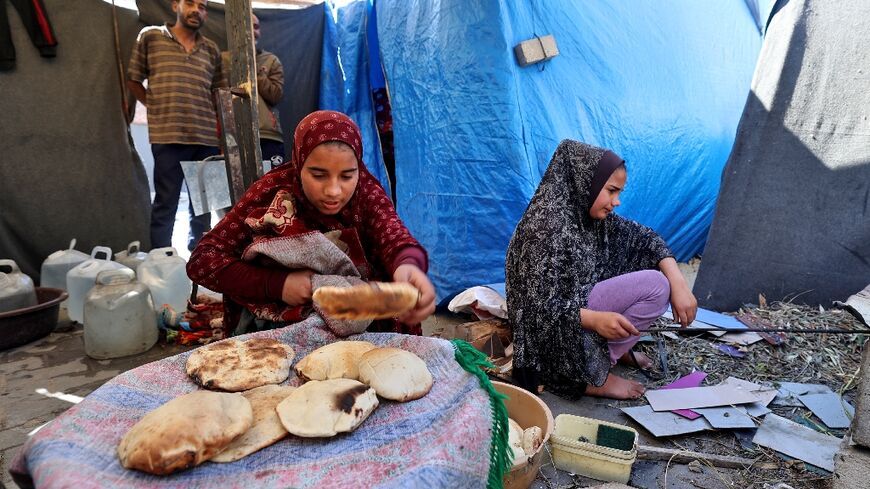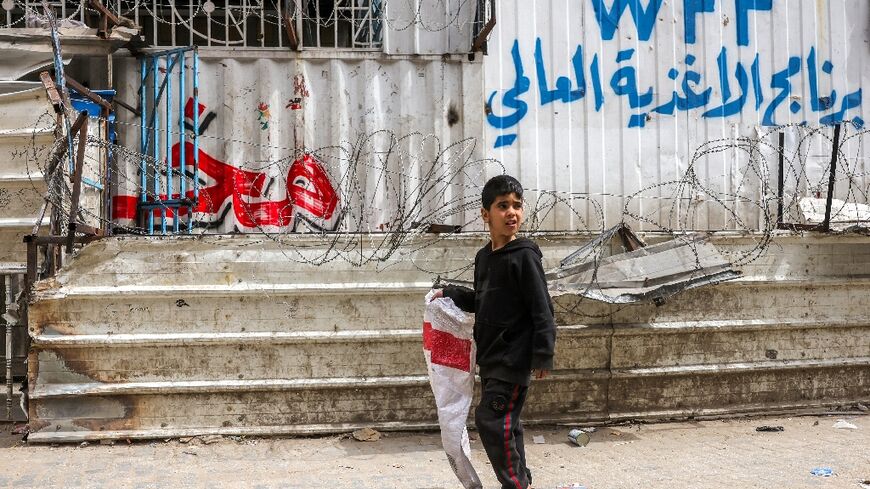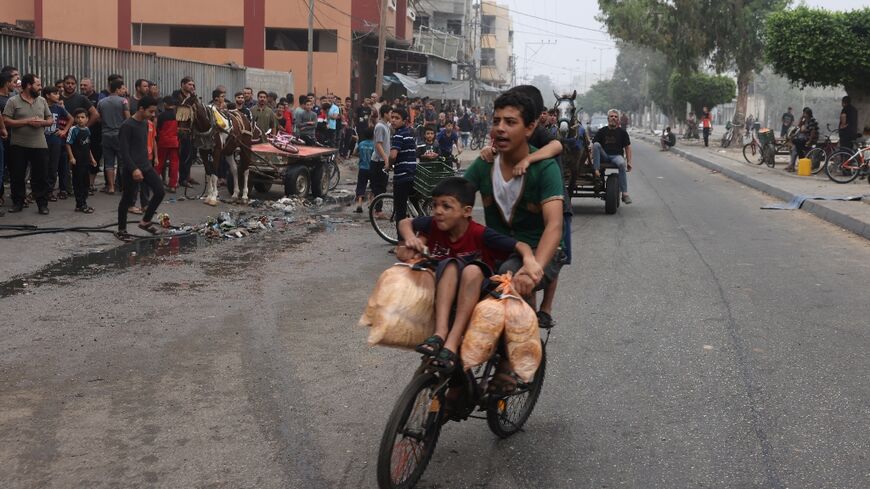Give us our daily bread: Gaza faces flour crisis
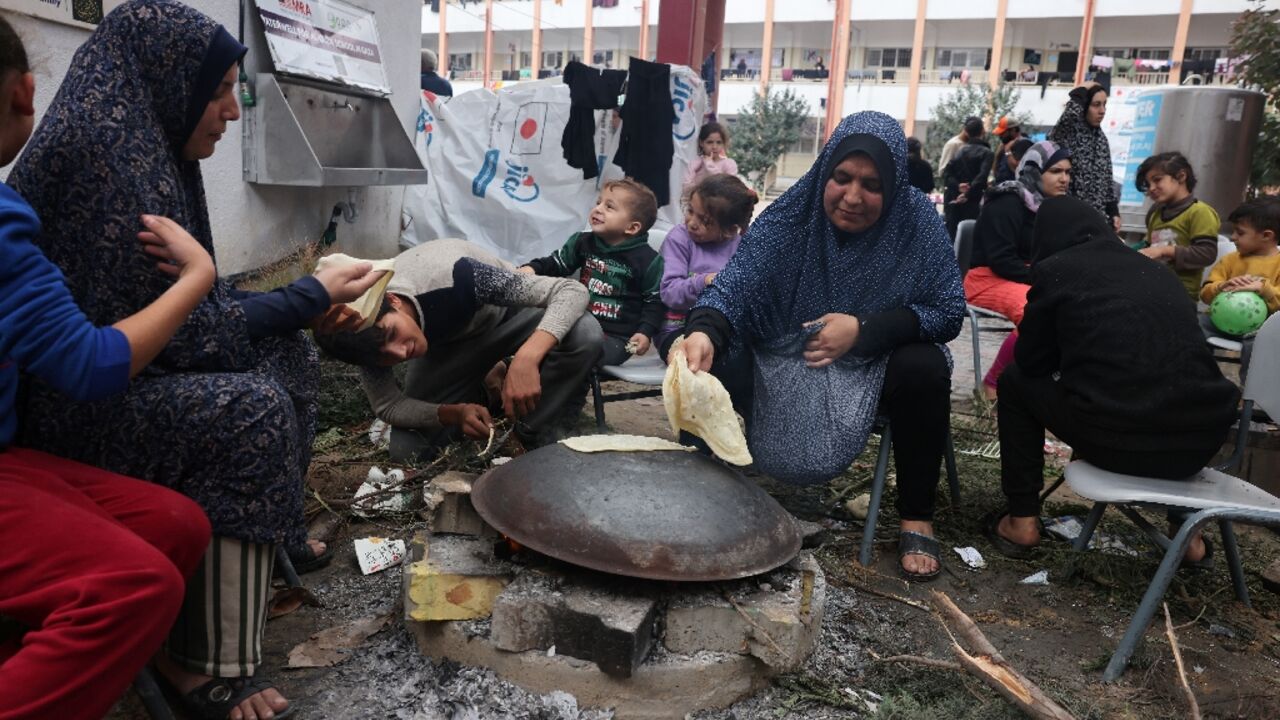
One of the last grain warehouses in the Gaza Strip has been damaged by Israeli strikes and a key flour mill in Khan Yunis -- where hundreds of thousands have fled -- has stopped working for lack of fuel.
The store, also in Khan Yunis in the south of the territory and with room for 3,000 tonnes of wheat, was hit by an air strike overnight Wednesday-Thursday. AFP was unable to ascertain what happened to its reserves.
"If the Red Cross does not get the authorisation from the Israelis so we can do the repairs needed, we will have to stop working," the head of the Gazan bakers' association, Abdulnasser al-Ajami, told AFP.
Further north in the centre of the Gaza Strip, another mill, Al-Salam, at Deir al Balah, was destroyed the day before, according to the United Nations humanitarian agency OCHA.
Of the five flour mills in the densely populated Palestinian territory, at least two have been hit since the war began on October 7, triggered by an unprecedented Hamas attack over the border into Israel, which left around 1,200 people dead, most of them civilians, according to Israeli officials.
Israel has vowed to destroy the militant group, launching a relentless bombing and ground campaign in Gaza. Hamas officials say the Israeli attacks have killed some 11,500 people, mostly civilians.
- 'Possibility of starvation' -
The few big bags of flour to be found in Gaza now sell at astronomical prices of up to the equivalent of $200.
Civilians in Gaza faced "the immediate possibility of starvation" as food and water have become scarce, the UN World Food Programme (WFP) warned Thursday.
A trickle of humanitarian aid arriving via Egypt has done little to remedy the shortages, made worse by power cuts and a lack of fuel for generators.
Some 1,100 trucks have been allowed into Gaza so far, around 450 of them carrying food, enough to cover only "seven percent of the people's daily minimum caloric needs", the WFP said.
There are just 2,000 tonnes of wheat remaining in Gaza, according to the UN agency for Palestinian refugees (UNRWA). This is the equivalent of 370 tonnes of flour, or five-to-six days' supply.
UNRWA told AFP it works with 80 bakeries across the territory. In the north, where the fighting has been most intense, all of them are closed.
Just 63 bakeries in central and southern Gaza are still making bread, but with difficulty because fuel is so scarce.
The largest bakery, in Gaza City, shut on Tuesday after the solar panels which powered it were hit in an Israeli strike. Afterwards, hungry residents looted the remaining flour.
- 'No more bread' -
Since the beginning of the Israel-Hamas war, residents have queued outside bakeries at dawn in the faint hope of getting enough to feed a family.
But anyone waiting their turn -- which takes five hours on average -- is exposed to the threat of new air strikes.
US aid agency Mercy Corps said its staff on the ground in Gaza have sometimes had to pay $30 for five pieces of bread.
In Gaza's shops, the shelves are usually empty and signs in the windows say "No more bread" or "No more yeast".
Together with the WFP, UNRWA distributes bread produced at its 154 shelters, which now host 813,000 people. But the trucks that deliver the bread are often short of fuel.
Many Gazans have resorted to making their own bread.
In the south, where most of the around 1.6 million people who have been displaced by the war stay, the glow of makeshift ovens outside houses or tents pays testament to their efforts.
But the flour, water and salt needed to make the bread are almost impossible to find in large parts of the Gaza Strip, according to OCHA.
Hungry Gazans were "skipping or reducing meals", it said, and sometimes eating "raw onion and uncooked eggplant".
